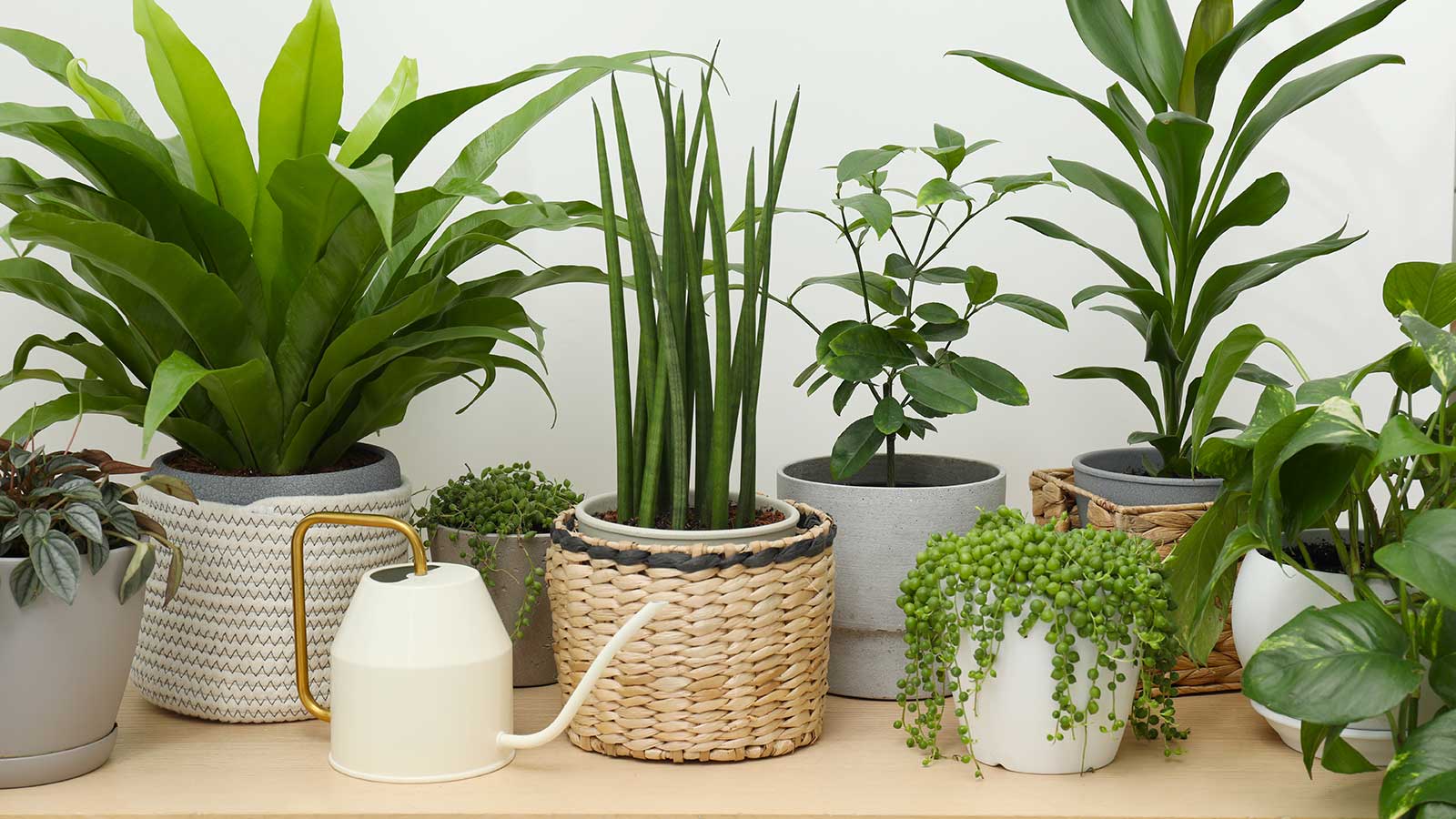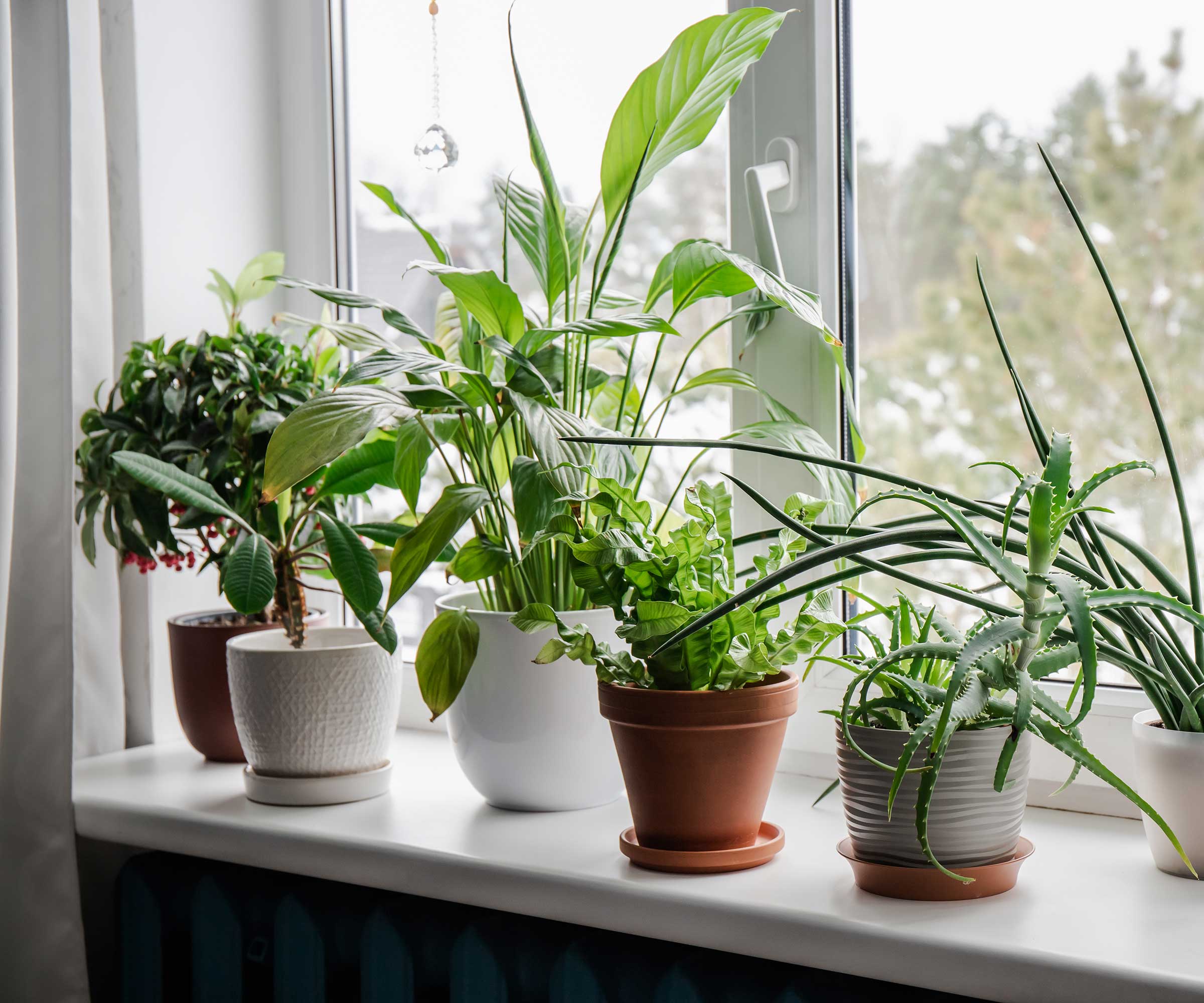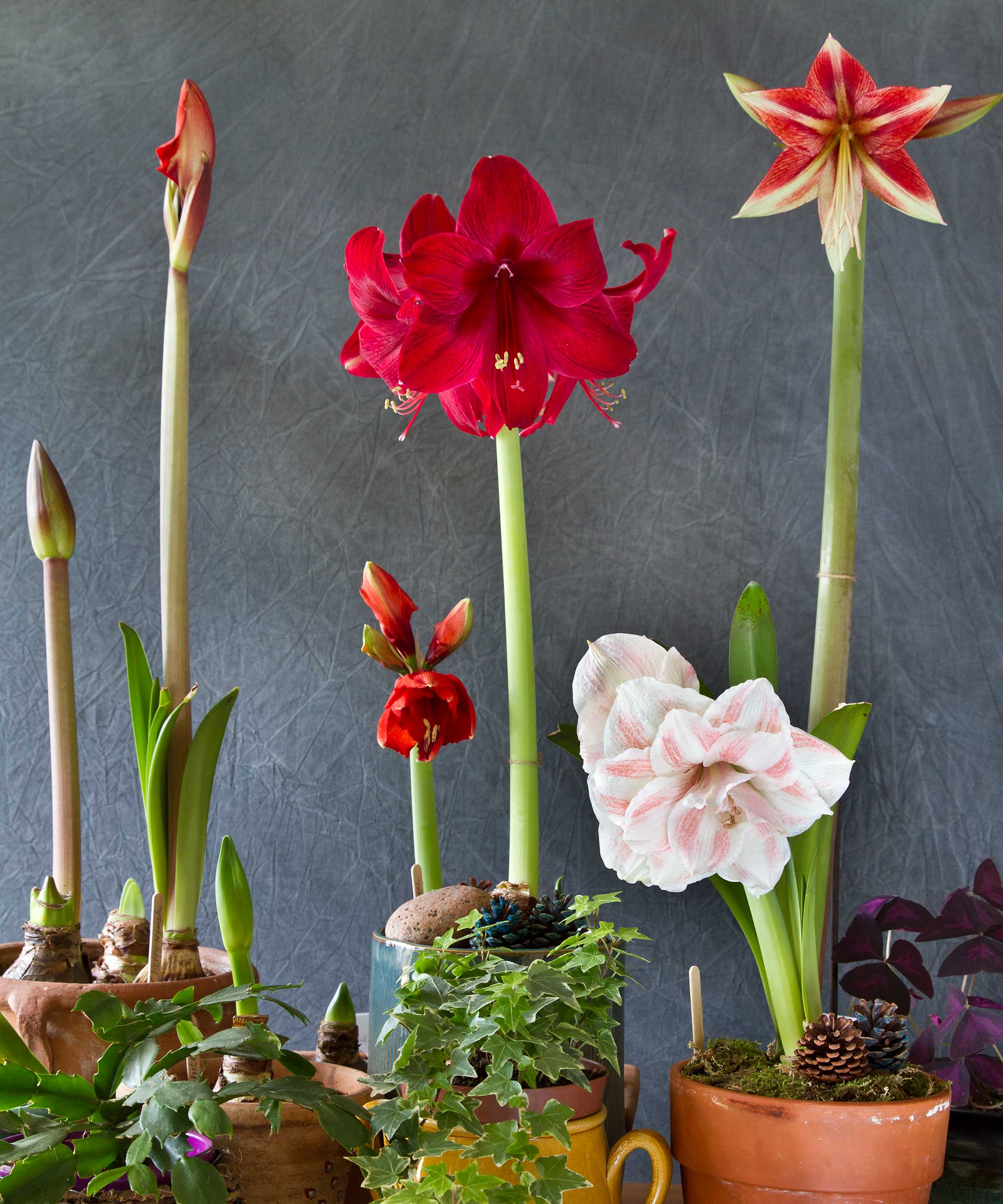Should you fertilize houseplants in winter? The experts advise
Feeding your houseplants during the colder months can do more harm than good, so it's best to proceed with caution – or wait until spring


Design expertise in your inbox – from inspiring decorating ideas and beautiful celebrity homes to practical gardening advice and shopping round-ups.
You are now subscribed
Your newsletter sign-up was successful
Want to add more newsletters?

Twice a week
Homes&Gardens
The ultimate interior design resource from the world's leading experts - discover inspiring decorating ideas, color scheming know-how, garden inspiration and shopping expertise.

Once a week
In The Loop from Next In Design
Members of the Next in Design Circle will receive In the Loop, our weekly email filled with trade news, names to know and spotlight moments. Together we’re building a brighter design future.

Twice a week
Cucina
Whether you’re passionate about hosting exquisite dinners, experimenting with culinary trends, or perfecting your kitchen's design with timeless elegance and innovative functionality, this newsletter is here to inspire
Q: I bought lots of new houseplants last summer to brighten my bedroom and home office. I fed them regularly during the warmer months with an all-purpose houseplant fertilizer and they thrived. Now winter is here, should I be feeding them less?
A: Usually, the answer is yes. The majority of indoor plants don't need feeding in winter, nor do they need much water.
'Most houseplants enter a dormant or resting phase during winter,' explains Kayla Gajdascz, the co-founder of Mental Houseplants. 'Their growth slows down significantly, and they require less energy.'
Fertilizing indoor plants during this period can lead to an excess of nutrients that cannot be used effectively, Kayla continues. 'This can lead to a buildup of minerals in the soil, potentially causing fertilizer burn to the roots.' It can also result in wilted and yellowing leaves, sometimes with brown tips. What's more, applying fertilizer may stimulate excessive foliage growth that the roots can't support, adds Kiersten Rankel, a plant expert at Gregarious, Inc.
Top tip: 'Succulents and cacti especially require little to no winter feeding once summer growing periods have completed,' Kiersten says.

Kayla Gajdascz is the co-founder and president of Mental Houseplants, a company dedicated to spreading the positive impact that plants have on our mental health. One way that the company does this is by partnering with NAMI, the National Alliance on Mental Illness (the Massachusetts chapter), and donating a portion of every sale to them.

Kiersten Rankel is a certified Louisiana Master Naturalist and regularly volunteers with local community gardens and nonprofits to help restore critical ecosystems along the Gulf Coast. She earned her master's degree from Tulane University in Ecology and Evolutionary Biology after her undergraduate degree in Environmental Biology, also from Tulane. In her spare time, she enjoys hiking and tending to her 150+ houseplants and vegetable garden.

Most houseplants slow down their growth during winter
Plants that can benefit from fertilizing in winter
There are, however, a few exceptions to this 'no feeding' rule. These are the plants that continue to grow in winter, such as the ones that produce winter flowers. For instance, you may wish to consider fertilizing winter-blooming orchids, says Kayla. Amaryllis – beautiful, festive flowers that grow from bulbs – are another example, as are indoor cyclamen.
Vladan Nikolic (Mr. Houseplant) suggests using a phosphorus-rich fertilizer to promote flower development on winter-blooming houseplants. 'Remember that fertilizers cannot be a substitute for the lack of light,' he adds.
Design expertise in your inbox – from inspiring decorating ideas and beautiful celebrity homes to practical gardening advice and shopping round-ups.
The Miracle-Gro Blooming Houseplant Food, available from Amazon, is a popular choice.
Additionally, if you provide grow lights and maintain a warm and stable indoor environment, some other plants may continue to grow and could require light fertilization, Kayla says. If you can see new leaves and shoots, it’s safe to fertilize, Vladan adds.
If you decide to feed your plants, don't fertilize them as frequently as you would in the warmer months, advises Kayla. To reduce the risks of overdoing it, Vladan suggests diluting fertilizer at half or quarter strength.

Vladan Nikolic, otherwise known as Mr. Houseplant, is a houseplant expert with over 10 years of experience. He is the founder of the houseplant care blog MrHouseplant.com and also an influencer who helps newcomers in the houseplant world become great plant parents. You can find him on Instagram, TikTok, YouTube, Facebook, Twitter and Pinterest.

Amaryllis may benefit from feeding in winter
FAQs
When should you stop fertilizing houseplants?
'The best practice is to stop fertilizing six weeks before the onset of shorter daylight hours,' says plant expert Kiersten Rankel. The soil will retain nutrients for several months, she adds.
When should you start fertilizing houseplants again?
'Resume fertilizing when new growth begins to emerge in spring,' says Kiersten Rankel. 'This supports plant development.'
'In general, it's best to avoid fertilizing houseplants in winter, respecting their natural growth cycle,' Kayla concludes. Instead, she advises focusing on providing optimal winter houseplant care through other means, such as maintaining humidity. Repotting should also be avoided, she adds.
Maintain temperatures above 55°F and place your plants in the sunniest window possible, recommends Kiersten. 'Check soil moisture periodically and water only when partly dry,' she adds. This is important for reducing the risk of root rot during the colder months – a potentially fatal problem for plants.
It's also essential to protect houseplants from central heating during the winter, otherwise, they can quickly dry out. Occasionally cleaning their leaves can also be beneficial – it helps them receive adequate light, and keeps them looking their best.

Holly started writing about gardening five years ago, and she is a regular contributor to Homes & Gardens. She has also written many gardening features for Woman & Home and Real Homes, too. She has previous experience as a professional gardener, where she helped to plant and maintain private gardens. Holly has also looked after allotment plots over the years and loves to grow her own flowers and veggies from seed. In her spare time, she enjoys visiting local gardens, botanical drawing, and tending to her ever-growing collection of houseplants.